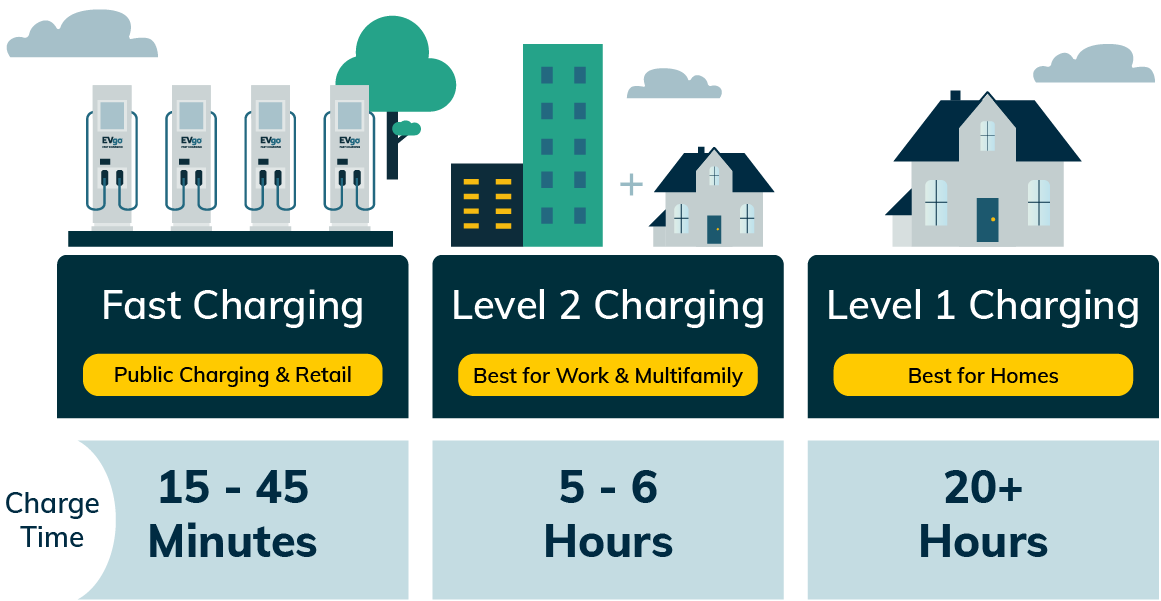
EV Fast Charging Infrastructure: Costs and Benefits of Rapid Expansion in the US
DC fast charging infrastructure is crucial for widespread EV adoption, with the U.S. requiring approximately 45,000 public DC fast chargers by 2025—a significant increase from the current 5,500. This expansion is essential to support the growing electric vehicle market, which has surpassed one million vehicles nationwide.
Fast charging stations allow EV drivers to gain 100 miles of range during routine activities like grocery shopping or dining out, making electric vehicles more practical for everyday use.

EV charging speed comparison chart
The higher costs associated with DC fast charging infrastructure are due to several factors:
- Sophisticated high-powered electrical equipment
- Complex site construction
- Utility infrastructure upgrades
- 24/7 reliability requirements
- Ongoing maintenance needs
To accelerate deployment and reduce costs, successful implementation requires collaboration between:
- Charging networks
- Government agencies
- Utility companies
- Auto manufacturers (OEMs)
Key elements for widespread adoption include:
- Private sector innovation
- Government incentives
- Legislative/regulatory mandates
- Streamlined deployment processes
As with other clean energy technologies like solar, costs are expected to decrease as the market scales. The goal is to make EV charging more convenient than traditional gas stations and as simple as charging a mobile phone, supporting the transition to sustainable transportation while improving public health and reducing emissions.
